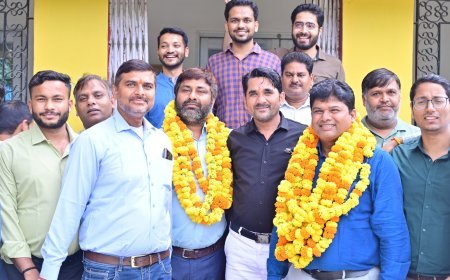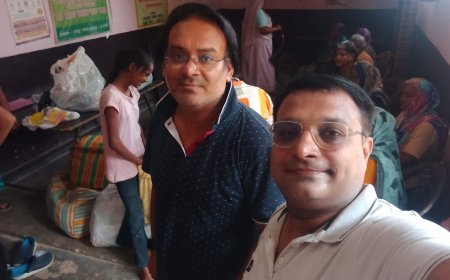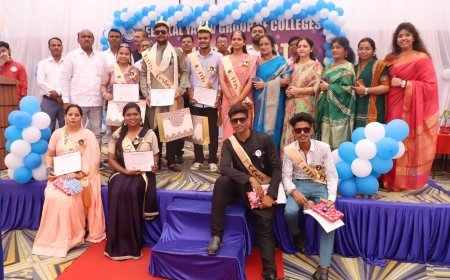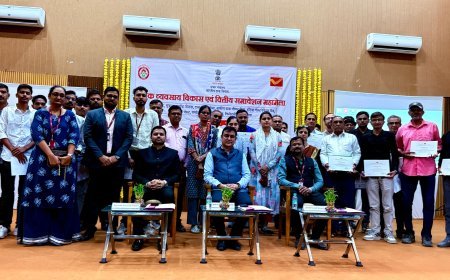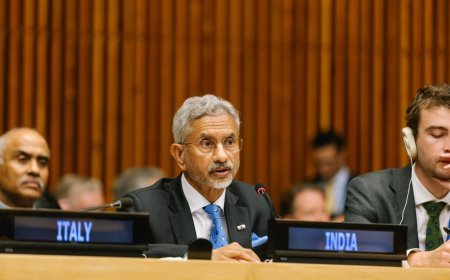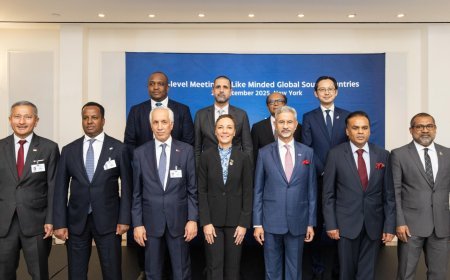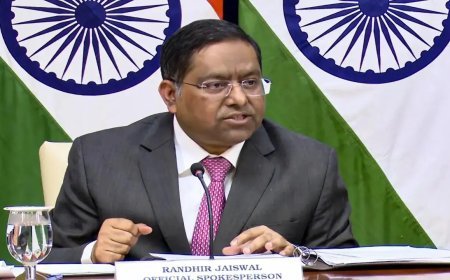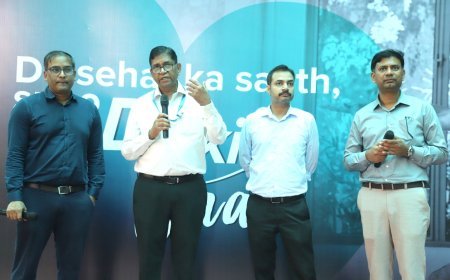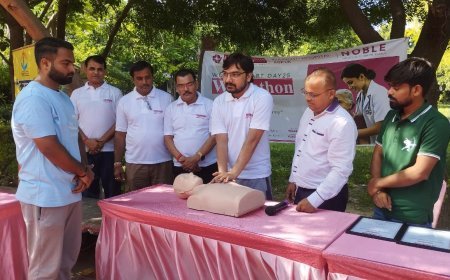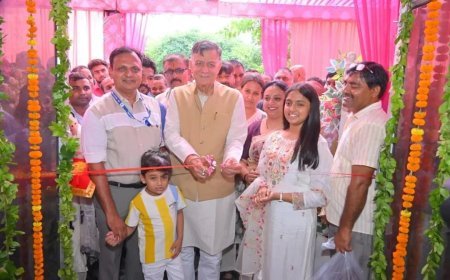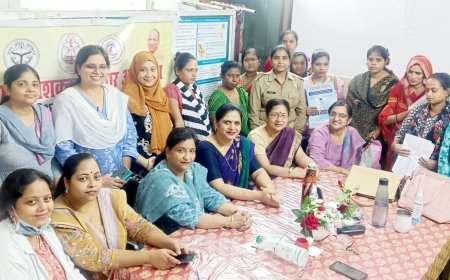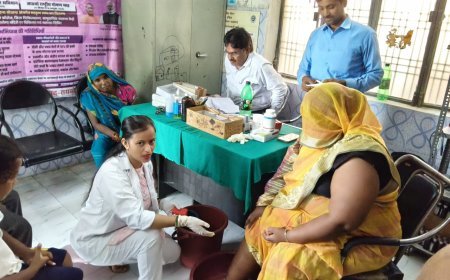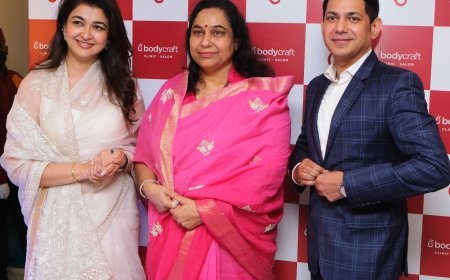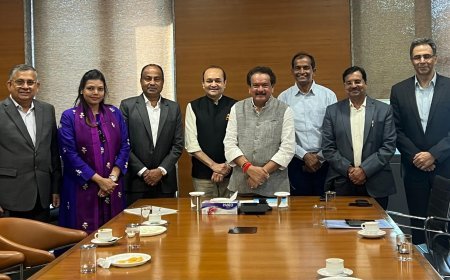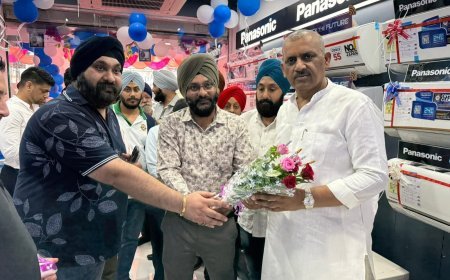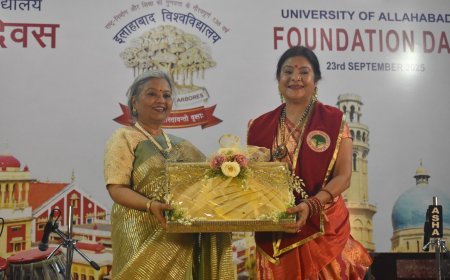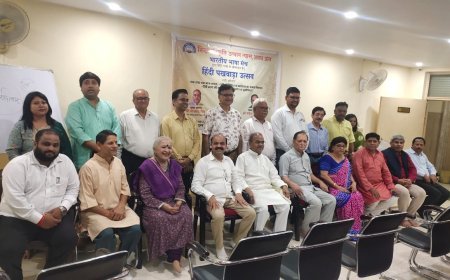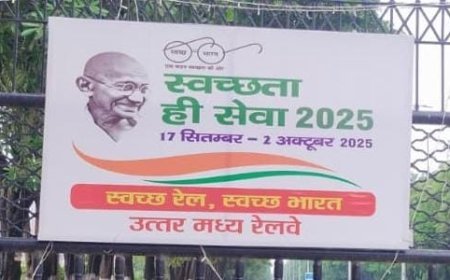BrahMos Facility Boosts Defence Self-Reliance : Rajnath Singh
Rajnath Singh inaugurates BrahMos testing unit in Lucknow, praises defence self-reliance and remembers Chandra Bhanu Gupta's legacy.
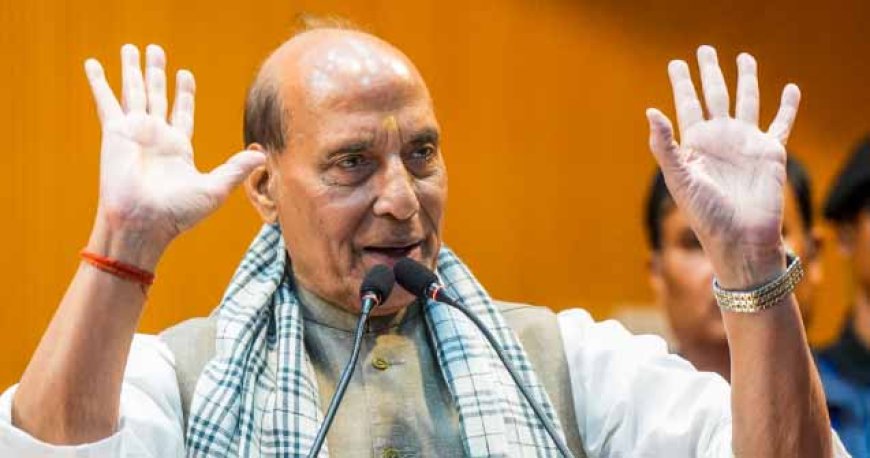
Lucknow : Defence Minister Rajnath Singh on Sunday emphasized India’s growing self-reliance in the defence sector with the establishment of the BrahMos Aerospace integration and testing facility in Lucknow. Speaking at a commemorative event held at the National PG College, Singh highlighted the strategic importance of this new facility and also unveiled a statue of former Uttar Pradesh Chief Minister Chandra Bhanu Gupta while releasing a commemorative postage stamp in his honour.
Referring to the recent inauguration, Singh stated, “The BrahMos integration and testing unit in Lucknow will not only strengthen India's defence capabilities but also generate local employment and promote industrial development in Uttar Pradesh. This is a major step towards achieving complete Atmanirbharta (self-reliance) in the defence sector.”
As the elected Lok Sabha MP from Lucknow, Singh expressed pride in the state’s transformation over the past few years. “Today, thanks to improved law and order, major investments are coming to Uttar Pradesh. The rapid expansion of expressways, metro lines, airports, and medical institutions reflects the state's new developmental narrative,” he added.
The event was also marked by a heartfelt tribute to Chandra Bhanu Gupta, a stalwart of Indian politics and three-time Chief Minister of Uttar Pradesh. Recalling Gupta’s contributions, Singh described him as a symbol of sacrifice and public service, deeply rooted in India’s freedom movement.
“Chandra Bhanu Gupta began as a grassroots freedom fighter and went on to occupy one of the highest political offices in the state. Yet, he remained deeply connected to the people and upheld the values of simplicity, honesty, and public welfare throughout his life,” Singh remarked.
He further underlined Gupta’s integrity, referencing his resignation under the Kamaraj Plan of 1963 — a political move where senior Congress leaders stepped down voluntarily from government positions to focus on organizational work. “Though he didn’t support the plan, he still stepped down, showing his commitment to party principles over personal power,” Singh said.
Drawing attention to Gupta’s administrative legacy, Singh said, “Leaders like him laid the foundation of the democratic and administrative systems we benefit from today. Even though his time in power was not long, his governance was impactful and nationally oriented.”
The Defence Minister also emphasized the importance of fostering values of cooperation and service in political life. “Politics may bring differences, but it must not breed enmity. Gupta ji’s life is a lesson in humility, unity, and selfless leadership,” he concluded.
The day’s dual focus on national security through technological advancement and homage to a legacy of ethical governance provided a powerful reflection of India’s evolving democracy, balancing tradition with forward-looking strategies.
What's Your Reaction?
 Like
0
Like
0
 Dislike
0
Dislike
0
 Love
0
Love
0
 Funny
0
Funny
0
 Angry
0
Angry
0
 Sad
0
Sad
0
 Wow
0
Wow
0


